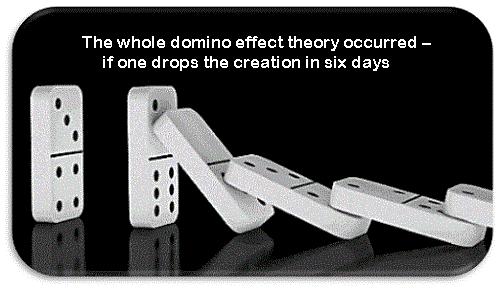He Became Humble
He Became Humble

This article is a chapter from ‘Hete Hangijzers’, a book dealing with controversial issues in the Christian Faith. The authors of the various chapters formulate answers to those questions that keep coming up such as ‘Why does God allow suffering?’ and ‘Why is there violence in the Bible?’ This article formed the final chapter, in which the author tries to define the kernel and relevancy of the Christian Faith to all people, the crux of God’s decisive reaching out to us in the death and resurrection of Jesus Christ.
Answers to intellectual questions regarding religion – Does God exist? What is the meaning of suffering? – can be rationally quite satisfying without appealing much to the imagination. That is because they do not eliminate the more personal objections. For if it is the case that a certain suffering was necessary to teach me something, could that not have been achieved in a different way? Although there have been people who came to faith by following a rational path, there is usually something more to it. For example, an extraordinary experience. The German theologian Wolfhart Pannenberg (b.1928) had an intense religious ‘experience of light’ when he was sixteen, which formed the start of his search for religious faith. And Clive Staples Lewis (1898-1963), after his commitment to faith, was, to use his own words, ‘overcome with joy’.
Other examples of conversions by well-known Christian intellectuals show us that there is often a void that craves to be filled. The North-African philosopher and later church father Aurelius Augustine (354-430) was a teacher of rhetoric in Milan when he became impressed by the sermons of Ambrose, the local bishop. At the same time he was struggling with what we would today call a sexual addiction. In his Confessions he writes that, when he was walking in the garden, feeling utterly miserable, he suddenly heard children in a neighboring garden shouting: ‘Take up and read! Take up and read!’ He opened the book he was carrying, one of Paul’s epistles from the Bible, and read the passage where Paul calls upon Christians to abstain from a life of immorality and clothe themselves with Christ.1
Augustine writes,
at the end of this sentence, by a light as it were of serenity infused into my heart, all the darkness of doubt vanished away.2
A twentieth century intellectual career change inspired by a religious experience can be found in the example of Alvin Plantinga (b. 1932), the American Philosopher of Religion. In the 1950s, Plantinga spent one or two semesters at Harvard University. The Reformed student from Grand Rapids found himself being deeply influenced by the non-religious teachers, and by their objections to the Christian faith. But one day in January, when he was walking from the dining hall to the dormitories in the rain, the heavens opened up to him and he was persuaded that what he believed was true. With this experience, all objections were reduced to merely philosophical problems.
Searching for the Core⤒🔗
There is a point of similarity between the faith of Augustine, Lewis, Plantinga and so many other Christians. In short, it comes down to the fact that, according to these believers, God characterizes himself in a permanent, deep involvement with this earth. Again and again he comes into peoples’ lives, to impress upon people who He is: Creator of heaven and earth and the source of all good. But he also comes to show that he is always prepared to walk the extra mile with people in order to win them for himself. Indeed, his involvement and vulnerability was so great that he, in the person of Jesus, became man and, in his life, death and resurrection, saved the world from evil, fear and death. And strangely enough, the Bible says that it is this vulnerability that pre-eminently displays his divinity. God became humble. And Jesus has showed us that it is in this action that his greatness, goodness and love all come together.

The Christian Faith presents a strange story, in which there is room for our worldly existence, including all the inherent positive and negative emotions, and in which trust and faith clearly precede actions. It is a religion that is characterized by an enormous diversity, which does not at all mean that it cannot be described. All believers, from all times and all parts of the world, identify with Abraham. All draw hope from the core moments in Israel’s history: the deliverance out of Egypt, and the return from exile. All embrace the first century rabbi Jesus of Nazareth as Anointed, as Christ, because he, in his life, made God’s promises for Israel come true, and also for the whole world.
Whoever steps into a church, anywhere in the world, personally experiences the consequences of the enormous Christian diversity. The mystical atmosphere in a Roman Catholic church makes a very different impression from that within a Reformed or Presbyterian building, in which the emphasis is on the Word. In Evangelical services, the goal is to keep the barrier between the church and the everyday world as low as possible and create the right conditions for personal experience. However, the cross and the Bible are never missing. And everywhere faith comes into being within the steadfast quadrangle of the true doctrine, the Christian life, the liturgy, and a Christian organization with Jesus as its Head.
While there may be great differences of opinion between Christians, all churches who aspire to stay close to the Biblical message share the so-called ‘common’ or ‘catholic’ faith, as it was established in the first six centuries. A common ‘orthodoxy’ started to develop, which the church (already diverse in those days) formulated in response to a few logical questions that present themselves to everyone who becomes acquainted with the faith. This meant that the Bible - the Jewish scriptures and the books of the New Testament – had to be, and remain, authoritative: that Jesus’ divine and human ‘natures’ were united and unchanged, undivided and inseparable; and that the church professes the belief in the one God and the three persons, Father, Son and Holy Spirit.
Still the question remains: in what manner is that well documented Christian doctrine of benefit to man? With Augustine’s thinking through of the faith, the Christian doctrine was, in fact, completed. But is the church’s statement about God not too decided and certain? What, in the end, does man know really about God?
Strangely enough, Augustine was completely satisfied with that. As in the whole of the early church, the traditional dogmas were to him like crash barriers: they mark out the space within which men may speak about God. Yet the mystery of faith itself is by no means defined by them. Whoever wishes to know more about the secret of God must read the Bible and try to formulate what the Christian Faith is all about.
The Worldly Faith←⤒🔗
Whoever opens the first part, the Old Testament, enters into a world of nomadic leaders, farmers, prophets, priests and wise men, in a small country in the east of the Mediterranean world. That the Christian church chose to make these scriptures their own, which were also authoritative to Jesus, is quite something, for it makes this faith worldly through and through. The chapters are about YHWH, Israel’s God. This God makes himself known in laws and visions. Yet the world in which people live, with their emotions, wisdom, scepticism and complaints, is never out of the picture.
Strangely enough, this does not touch only upon that small nation that is stuck in the middle of the raging powers of Egypt and Babylon. It touches upon the whole world. Right through the judgment of unfaithful Israel, YHWH makes a new beginning. A remnant of Israel will return to Judah. And there will be a day, say the prophets in the times of exile, when the Anointed will come, a king who is at the same time priest and prophet. With his coming, YHWH will make everything right with Israel and the whole world.
Jesus and the Kingdom of God←⤒🔗
The core of priest-king Jesus’ message was the coming of the Kingdom of God. His contemporaries knew exactly what that meant. That meant God’s deliverance, God’s judgment over good and evil, and, via Israel, God’s salvation for the whole world! Jesus’ first presentation in the synagogue in Nazareth – where he read Isaiah 61 – is in complete harmony with that. When God’s promise of the Kingdom is fulfilled, the needy will receive the good news, prisoners will be set free, the blind will see again and all oppression will come to an end (Luke 4).

He characterizes God’s Kingdom as a mustard seed, which grows strongly but slowly. He states that citizens of this Kingdom should not repay evil with evil, should walk an extra mile with others, and should turn the other cheek to their enemies. At the same time, Jesus reinterprets the meaning of the crucial symbols of the Judaism of his days, much to the annoyance of many. When the kingdom of God truly breaks through, it is in some sense logical that he does miracles, grants forgiveness to sinners, and feasts with prostitutes and the hated tax collectors. But whoever still has doubts finds a problem with the way he deals with the food regulations and the Sabbath. And what he says about the temple and the land is, to them, a total blasphemy.
The Jewish leaders in Jerusalem realized from the start how far reaching Jesus’ call to repent was. Israel had failed at being the light of the world. It had dismissed God’s goodness. Unprecedented is the severity with which Jesus’ summarizes the Old Testament, formulating this in the parable about the man who sent his servants out to reap the harvest of his vineyard. One by one they are jeered at and beaten up. And when he sent his son – for would they not leave him alone? – they did not shrink from murdering him (Matthew 21).
What Jesus says about himself is remarkable. He, by whom YHWH himself comes down to his people, foresees his death. In this light, it is no wonder that the four gospels pay the most attention to the last week of Jesus’ life. His suffering and death, paradoxically, form the climax of God’s history with Israel. It is through this suffering that the Kingdom will come. All the royal, prophetic, and priestly images of God’s way with Israel are joined together here.
The Most Promising←⤒🔗
How is it that this story has not faded away into history, as did the stories of other self-appointed messiahs from those times? And a far more existential question: could it really be true that God in Jesus liberates and brings justice once and for all? Does he ask of me that I acknowledge him as King of the world?
These questions take us to one of the most remarkable, but also the most convincing and promising, crucial points from the New Testament: Jesus’ resurrection. The resurrection is a mystery. You have to believe it. At the same time, the testimonies in the epistles and the stories in the gospels are so deeply embedded in ordinary life, that questions and doubts come forward of their own accord.
It is possible to think that the ‘Easter legends’, containing apparitions and an empty grave, originated when Jesus’ crucifixion was being viewed more and more as an ‘exaltation’. A ‘demythologizing’ theory like that forms a comfortable backup when one is at a loss for answers. But as a historic explanatory model this view falls hopelessly short. It is exceptionally peculiar that supporters of a multi-faceted Judaism with numerous views on the future of Israel, in respect of the Messiah and the resurrection, suddenly together form one movement with rather precisely specified views. A movement, moreover, that incorporates heathens and spreads across the Roman Empire with a rapid tempo. How is that possible, while all the texts at hand make it clear that a dead Messiah cannot be a Messiah, and that Judaism forms a unity on one point at least: heathens never being allowed to receive a worthy station?
The resurrection stories do not give the impression that they came into being gradually. The image emerging is rather one that implies that the gospels’ reports of the resurrection rely on very early testimonies of utterly astonished people, mostly women. The many small inconsistencies between the different versions do not contradict this image. On the contrary, they confirm it, because they give us a sense of the confusion and the total surprise.

In a similar way, the actual resurrection of Jesus Christ presents the key to the understanding of the origin of Christianity. If Jesus is the Messiah, and God raised him from the dead after his death on the cross, everything comes together. An enormous disappointment results in an unexpected joy. The last judgment has been postponed. Because of his endless compassion, God breaks into this world, prior to the resurrection of all people at the end of history. Once again, and now definitely, he reaches out, extending his hand triumphantly, not to Israel alone, but to all nations. After the ascension, Jesus is working in heaven towards that moment when he will pass judgment as King and Judge, when the definitive renewal of this creation will take place. But already now there is liberation and hope because victory has been achieved. Whoever acknowledges Jesus as Lord belongs, through the Holy Spirit, to God’s new people, a people built on the testimonies of Jesus’ twelve disciples.
The gospel is the astounding story of a strong and wise God who became weak and came to us with a foolish gospel. The crux of this story is a Person. It is the person of the Awesome one, who does not relinquish His creation but, in Jesus, saves not only a nation, but all the world. He lives! Through his Spirit He is present, speaking and renewing. And knocking on the doors of people’s hearts in numerous ways.
Trust and Joy←⤒🔗
But why should you open the door? All the above is written by a Christian, and thus not a neutral observer. Not that I never doubted whether God existed. When I studied theology in Kampen in the early nineties, I became intrigued by the contradiction between historically-critical and apologetic Bible science. It became a great existential problem. The whole domino effect theory occurred – if one drops the creation in six days, eventually the resurrection will follow. Until, that is, Christ himself intervened in my doubt. I understood that in this area also I had to learn to trust. Limited human knowledge is incapable of laying down a rational foundation beneath the Biblical Faith.
So God exists. But is he also good? I came up against this question when I had to stand powerlessly aside while a lengthy and deep depression took hold of someone close to me. How can God allow people to suffer so, to be brought to a complete standstill? Nevertheless, I held onto the conviction that God is good. Not because I understood any of it, but because he gave strength. And because I experienced that, time and again he allowed me to draw hope and trust from Bible readings, liturgy and discussions: in Jesus’ suffering God is not distant and out of range; through his resurrection there is hope.
No doubt many psychological processes played a role in the aforementioned two events. It also had a lot to do with growing up. But there was something else too: God’s decisive, compassionate reaching out from the Other side. The experience that Christ, in the cloth of the Biblical story, spoke with authority and came over to me. Therefore I am deeply convinced that it is beneficial to acknowledge Jesus as King, to connect all good with God’s creation and to incorporate one’s own life story and allow it to be changed by the story of Jesus’ suffering, death and resurrection.
Therefore, in conclusion: what are the overriding arguments that convince me of the truth of the Christian Faith?
The first reason is that of the unmasking. In the estimation of late modern western culture, truth is uncertain. And evil, which does not allow itself to be shut out, does not convince people of their wickedness and guilt. On the contrary, people are primarily a victim of their genes, their upbringing and circumstances.
The Christian faith unmasks this view of reality. Life is dangerous. There is a battle going on between good and evil. By actually naming evil as sin and guilt, man is liberated from the shackles of circumstances. Because there is now talk of real responsibility, the essence of being human is viewed more realistically. The possibility of forgiveness brings the hope of a new beginning. And where no man is able, Jesus leads the way.

The second reason lies in the sense of existence. The Bible leaves room for the chaotic experience of existence, but at the same time emphasizes the sense of it in the light of God’s promises.
Everyone struggles with the deep fear that he or she is not being acknowledged. The Christian Faith on the other hand emphasizes that everyone as been purposefully created by God. Whoever is overwhelmed by beauty, enjoys what the creator has invented. He is involved in his creation. This makes it possible to ask him to allow a seemingly meaningless exertion to bear fruit. And where the present-day successful ideology has trouble speaking of the meaningful and valued existence of the poor, handicapped and demented, Jesus shows us that they can be an example to others in their humility and dependence. They do not need to be ashamed of their arrogance.
A last, overriding argument lies in the Christian hope. God is trustworthy. If he promises to punish evil and restore justice to the victims, then he will. If he promises to protect his creation, then he will. It is not for nothing that many who allow to penetrate the wonderful story of Father, Son and Spirit of creation, redemption and renewal, experience wonderful joy in this Triune God. His creation and redemption reflect his unspeakable love. The road through self-denial and death was not too far a road for him to take in order to prove that. Moreover, in his resurrection the victory stands certain. That gives us all the reason to hope on a solid foundation.
Augustine wrote,
Why place your trust in yourself? To find yourself untrustworthy? Throw yourself into his arms; do not be scared. He will not pull back and let you fall. Make the leap without anxiety; he will catch you and heal you.

Add new comment